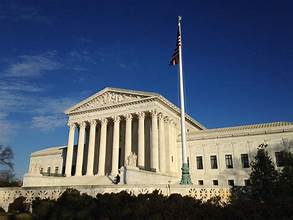US Supreme Court declines to decide legality of excluding jurors based on religion

WASHINGTON (Reuters) -The U.S. Supreme Court on Tuesday declined to decide the legality of excluding jurors on the basis of religion, turning away a Missouri agency’s bid to reverse a lesbian worker’s win in a workplace bias lawsuit after three prospective jurors were excluded for citing Christian beliefs that being gay is a sin.
State officials had appealed after a lower court denied their request for a new trial following a jury decision siding with plaintiff Jean Finney in her suit against the Missouri Department of Corrections. The state had argued that the removal during the jury selection process of the three individuals who expressed their religious views violated the U.S. Constitution’s 14th Amendment promise of equal protection under the law.

Finney, who is a lesbian, sued the Department of Corrections, her longtime employer, claiming she faced a pattern of workplace discrimination and retaliation after she began dating a male co-worker’s former wife. Finney, seeking monetary damages, accused the agency of violating Missouri human rights laws by creating a hostile work environment and discriminating against her on the basis of sex.
The jury in 2021 sided with Finney, awarding her a total of $275,000 for her sexual discrimination and hostile work environment claims.
During the jury selection process in which prospective jurors are questioned to probe possible bias, her lawyer asked about religion in an effort to “identify persons with strong feelings on the subject of homosexuality,” Finney’s legal team said in court papers.
Her legal team asked Missouri state judge Kate Schaefer to remove the three jurors because the lawyers believed their answers to questions about whether homosexuality is a sin showed the jurors were biased against gay people.
The judge said that two of the three jurors in question had been “very clear in that they could be absolutely fair and impartial in this case,” but she agreed to exclude the jurors in order to “err on the side of caution.”
The judge granted the request over an objection from Missouri officials, whose lawyers at one point during the jury selection process expressed concerns about “getting into the bounds of religious discrimination.”
After the state appealed, a Missouri appellate court ruled that the trial court had acted lawfully, finding that the elimination of the prospective jurors was based on their views on homosexuality – which the court called “a central issue in the case” – and not because they were Christians, as Missouri officials argued. Missouri’s top court rejected a subsequent appeal by state officials, prompting their appeal to the U.S. Supreme Court.
Missouri officials told the justices that equal protection rights, which protect prospective jurors from being eliminated on basis of sex or race, should extend to religion, adding that the U.S. Constitution “ought not to tolerate exclusion on the basis of religion, the very first freedom protected by the Bill of Rights.”
State officials conceded that prospective jurors could be excluded if specific religious beliefs, as opposed to merely the religion to which they adhere, caused them to be biased.
The Supreme Court, which has a 6-3 conservative majority, has taken an expansive view of religious interests in recent years, including a decision last year that permitted an evangelical Christian web design business owner to refuse to provide service for same-sex weddings.
The court in 2022 sided with a public high school football coach who was suspended for refusing to stop leading Christian prayers with players on the field after games.
Source: REUTERS


